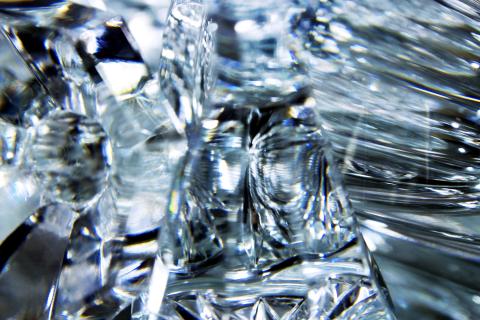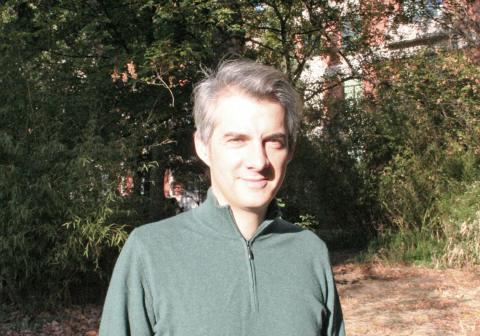
Giulio Biroli: Research at the border of statistical physics
On November 20, 2018, Giulio Biroli received the Prix d’Aumale from the Académie des Sciences for his research on amorphous solids at France's Institute of Theoretical Physics (CNRS/CEA). His work, which borders on statistical physics, will also prove valuable to other fields, such as artificial intelligence or biology.
Fascinated by physics and mathematics, Giulio Biroli studied nuclear engineering at Politecnico di Milano then, during an exchange program with École Polytechnique of Palaiseau, realized that what he really wanted was a career in research. After taking his master's and a PhD in theoretical physics at Ecole Normale Supérieure, he did two years of postdoctoral research in the United States. Returning to France, he came to work at the Institute of Theoretical Physics at Saclay, where he would spend the next sixteen years.
The beauty of the abstract
Giulio Biroli seeks to understand counter-intuitive phenomena. "In physics, when phenomena interact in complicated ways, we examine them individually. Complex and unexpected phenomena emerge, which we call 'disordered' or 'frustrated' systems," he says. "My work, which borders on statistical physics, is to build new theoretical models to study modern phenomena in various disciplines, including theoretical computer science, social science, biology and artificial intelligence." For instance, his models may be applied to deep learning or the study of ecosystems. "That's the beauty of theoretical physics!" he comments with enthusiasm.
The mysteries of glass
Giulio Biroli's main focus is the formation of amorphous solids, such as glass, "a liquid so viscous that it transforms into a solid," he observes. "The way its atoms behave is incredible. Elucidating the mystery of glass formation would help solve problems in other sectors." In 2004, Giulio Biroli worked with physicist Jean-Philippe Bouchaud, laying the theoretical groundwork for his research. He then undertook experiments with François Ladieu's team at the Condensed Matter Physics Laboratory (SPEC) of Saclay’s French Alternative Energies and Atomic Energy Commission (CEA Saclay), obtaining remarkable results: "The lower the temperature, the more the atoms in the liquid move a very concerted, non-random manner within a given thermodynamic range."
The Prix d'Aumale is awarded by the Académie de Sciences. "This mark of recognition by my peers is a great honor," says Giulio Biroli. "I feel very fortunate." Today he is a professor at ENS Paris. His aim is to share special moments like this with his students, whom he wishes "to introduce to research and the beauty of theoretical physics." He also aspires to educate the public, "explaining things as clearly as possible." In this role, Giulio Biroli serves as editor-in-chief of Sapere, an Italian popular science magazine.
